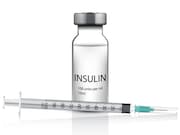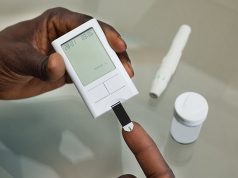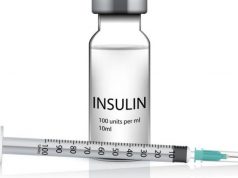Almost one-third of people older than 30 when first diagnosed with type 2 diabetes have type 1
TUESDAY, May 14, 2019 (HealthDay News) — Type 1 diabetes diagnosed in those older than age 30 years is clinically and biologically similar to disease occurring at younger ages but is often misidentified, according to a study recently published in Diabetologia.
Nicholas J. Thomas, M.D., from the University of Exeter in the United Kingdom, and colleagues used data from the Diabetes Alliance for Research in England cohort to assess the characteristics of type 1 diabetes in 583 participants with insulin-treated diabetes diagnosed after age 30 years.
The researchers found that 21 percent of participants with insulin-treated diabetes diagnosed after age 30 met the study criteria for type 1 diabetes. Among these participants, 38 percent did not receive insulin at diagnosis, and 47 percent of these participants self-reported type 2 diabetes. Severe endogenous insulin deficiency was predicted by rapid insulin requirement. Forty-seven percent of those initially treated without insulin who progressed to insulin treatment within three years of diagnosis had severe endogenous insulin deficiency. Clinical characteristics were similar among participants with late-onset and young-onset type 1 diabetes. However, compared with those with young-onset disease, participants with later-onset type 1 diabetes had a modestly lower type 1 diabetes genetic risk score and a higher islet autoantibody prevalence and were less likely to identify as having type 1 diabetes.
“Clinicians should be aware that patients progressing to insulin within three years of diagnosis have a high likelihood of type 1 diabetes, regardless of initial diagnosis,” the authors write.
Copyright © 2019 HealthDay. All rights reserved.








